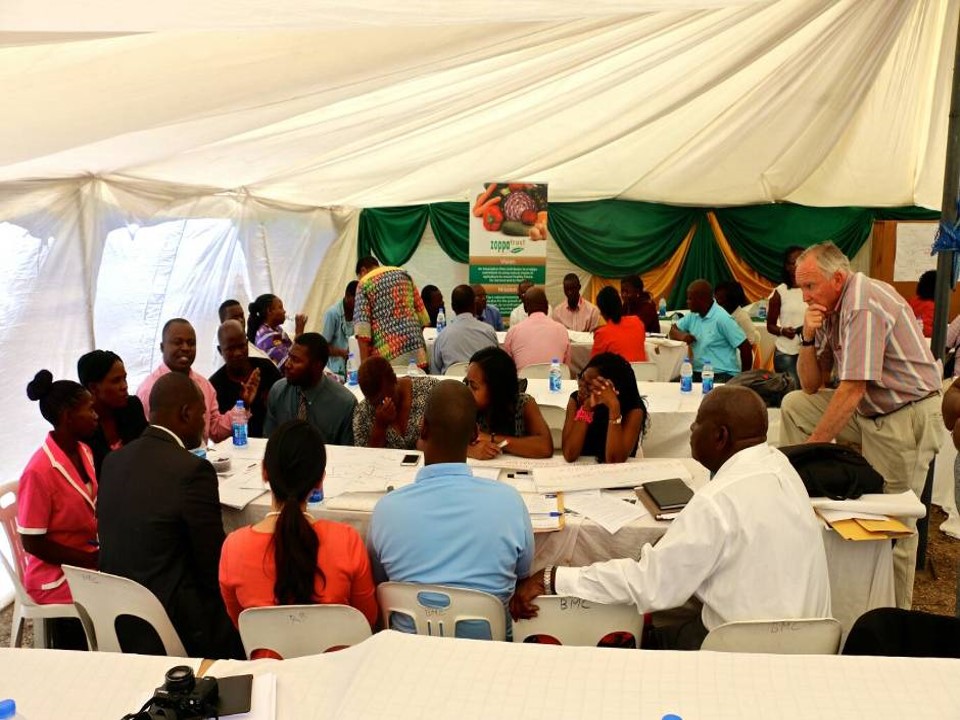
- This event has passed.
Towards Inclusive market development: Organic value chain discussion forum

October 30 @ 8:00 am – 5:00 pm UTC+2
Organic value chain discussion forum
Download pdf version click here

Challenges and Opportunities in the Organic Sector
Challenges
- Finance obstacles
- Expensive facilities available, OA perceived as risky Bullet
- Poor water availability
- Declining sources and expensive irrigation, and lack of knowledge on water rights
- Lack of extension support
- Lack of OA education in curricula
- Weak organic input markets
- Lack of commercialization of OA compatible pesticides and in depth research on dosages
- Market challenges
- Lack of market information
- Competition from imports and high product prices,
- organic status not seen as a selling point nationally
- market information lacking, weak certification and traceability
- Supply inconsistency causing lack of confidence
- Transport issues
- Poor infrastructure
- Poor producer coordination
- Certification Challenges
- Lack of knowledge on certification standards
- Lack of policy support for enforcement of standards
- Inaccessibility of certification services
- Challenges for export markets
- High bureaucracy
- High transport costs
- Policy unpredictability
- Limited information sharing
- Absence of information sharing along the value chain
- Weak online presence
- Lack of updated sector information online
- Domination by the older generation
- Young generation not keen to engage in OA
Opportunities
- Growing markets
- locally and globally
- Existence of small organized producer groups
- Could be organized for improved production/economies of scale
- Potential of growth for OA input sector
- Soil fertility
- Pest and disease management
- Packaging
- Zimbabwean policy stance on GMOs
- Zimbabwean products attractive for export and locally
- High presence of under-utilised species
- Potential for value-addition to develop novel products
- Potential linkage between OA and tourism market
- Promotion of traditional organic zimbabwean foods
- Positive workforce reputation
Vision By 2026
Increased capacity of 80% producers boosted to compete in 60% of local and international markets
Increasing the quality and quantity of production.
Improving support services (extension, finance, resource provision, information and communication, research and certification).
· Advocating for improving the enabling environment
Improved value-chain effectiveness and competitiveness
Identifying and addressing obstacles, facilitating communication between all value chain actors,
Empowering marginalised actors to participate to their fullest potential
Key Intervention Areas
Building producer capacity
- Strengthening producer associations
- Training
- Market research
- Information sharing
- Raising awareness
Improving support services
- Extension
- Research
- Organic certification
- Water development and access
- Information and communication
Improving the enabling environment
- Lobbying relevant stakeholders and ministries for policy change
- Raising awareness and the profile of organics
- Producer association empowerment to influence sector changes
Addressing Market Obstacles
- Product development
- Market analysis and developing alliances
Intervention opportunities
Youth
Developing future organic entrepreneurs along the value chain while simultaneously creating employment
Social Inclusion
Reaching the marginalised with low entry barriers into the agricultural sector
Human rights
Addressing people’s human rights throughrights to livelihood, right to safe food, right to clean water
Climate change
Organic agriculture as a way to mitigate and adapt to climate change impacts
Economic empowerment and livelihoods
By involving people across the organic value-chain
Health
Improvement of health of the producer, consumer and environment
Women
Improved livelihoods for womenas the custodians of family health and wealth
Education
Support of agricultural education at all levels
Media, Arts and Culture Public outreach of organic initiatives and their impacts on lives, environment and culture







